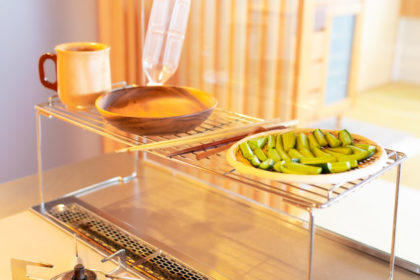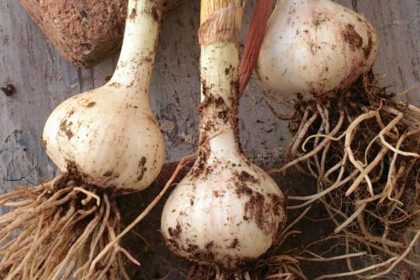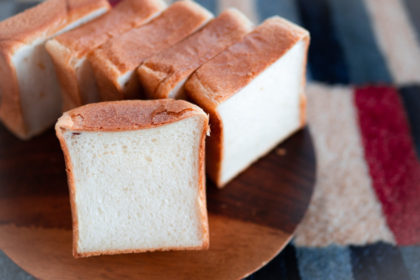Suited and not-suited vegetables for balcony gardening
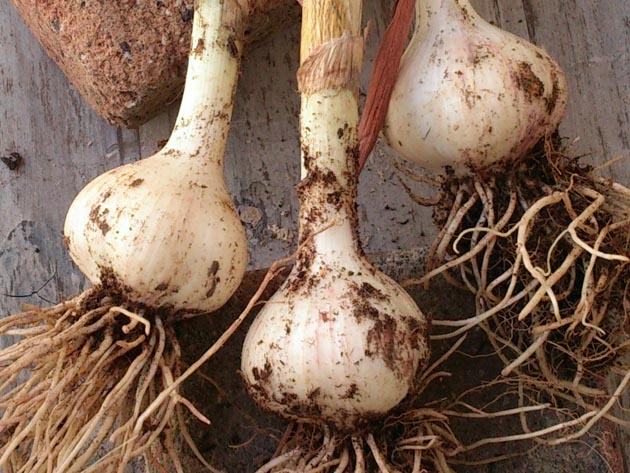
I have tried to grow various vegetables on the balcony of my condo.
Then I came to kind of the conclusion that there are suited and not-suited vegetables for balcony gardening.
Of course, the balcony’s environment differs one by one. I would like to introduce my case as an example.
There are four key points which are,
- Dryness
- Rotation
- Insects and birds
- Cost-performance
As the result, my recommendations as suited vegetables are, cherry tomato, sweet potato, okra, strawberry, and baby carrot.
Vegetables that we may need efforts and patience are, eggplant and mini pumpkin that require humidity, beans such as broad bean, snap peas and green soybean, leafy vegetables such as Japanese mustard spinach, regular spinach, lettuce, vines such as cucumber and bitter gourd and lastly single fruit vegetable such as broccoli and cabbage.
So, let’s look at them one by one!
The balcony is drier than we imagine! Dry-resistant vegetables are recommended!
That’s so different for plants if there is the soil of field that absorbs rain and dew or not. The balcony is a dry environment for plants.
Vegetables that are resistant to dryness can grow better on the balcony. My recommendations are,
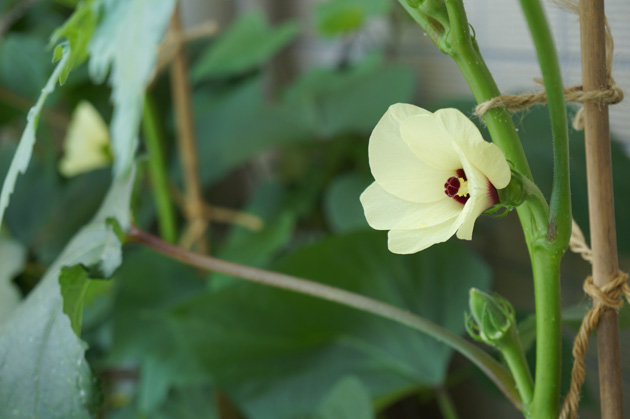
- Vegetables grow in Autumn and winter such as baby carrot, garlic and strawberry also relatively prefer dryness and grow well on the balcony if we care for sunlight.
On the other hand, plants that prefer water and humidity, such as eggplant and mini pumpkin often to be disposed due to powdery mildew (dryness is one of the conditions) in the middle before producing expected yield.
Doing seasonal rotation, planters can be utilized efficiently!
On the balcony, it is recommended to effectively switch and rotate the vegetables according to the season. It is important to utilize the limited space and to use planters efficiently. My recommended rotations based on climate of Kanagawa prefecture are,
- Sweet potato from June to October. Strawberry from October to May.
- Okra from May to September. Garlic from October to May.
- Cherry tomatoes from May to August. Baby carrot from August to January.
It is also very important to place the planter as high as possible to secure space and sunlight. By using a shelf or a stand to keep it high, you can grow vegetables that spread vines like sweet potatoes. And, not to forget to keep it away from an outdoor unit of the air conditioner.
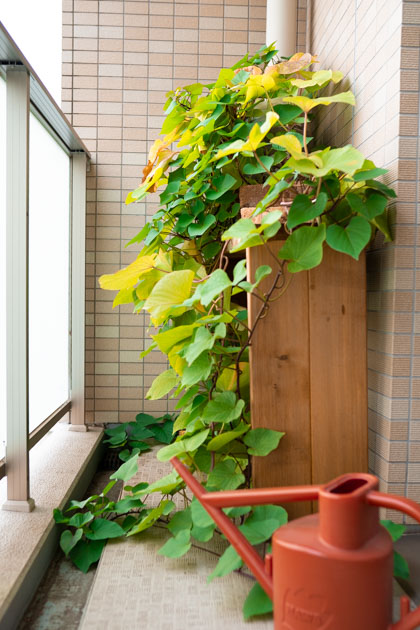
Be careful, insects and birds! Choose plants that don’t attract them
Insects and birds are trouble makers for balcony gardening. I often see aphids, cabbage moths, and scarab beetles that are active from spring to summer.
Insecticides are also effective for prevention and extermination. I mix chemicals in the soil when I plant vegetables that grow from spring to summer.
Beans such as broad beans, snap peas, and green soybeans are prone to aphids and are also targeted by birds, I gave up to cultivate on the balcony.
On the other hand, plants growing in autumn and winter, are easy to take care due to no damage by insects. I grow strawberry and garlic every year, but I have never experienced damage by insects.
Vegetables able to grow from spring to winter such as baby carrot, it is easier to cultivate in the season going colder weather, and it is also more delicious with better color, I believe.
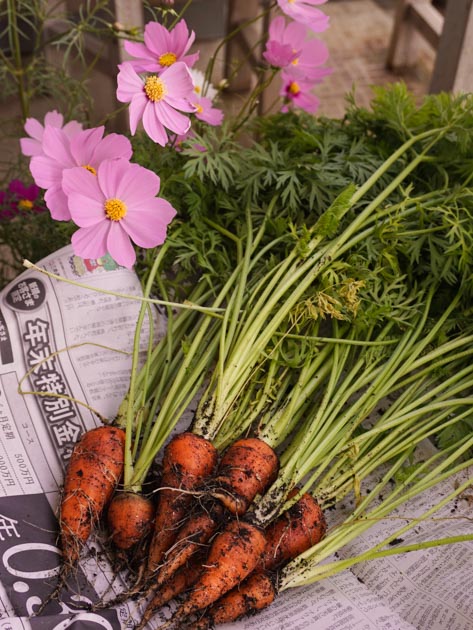
By the way, after several years of fighting against birds (bulbul), I succeeded to get rid of them by putting a string on the fence. Birds every time stay on the fence and watch before they enter the balcony. They don’t enter suddenly. If there is a string, they can not stay on the fence. Moreover, the biggest fear for birds is that their wings would be hurt. The string could also be a deterrent in that sense.

Better cost performance can increase motivation when you cultivate vegetables on the balcony!
Don’t you think sometimes, if you cultivate vegetables at home?
“This could be much better to buy from vegetable shop..”
As for the vegetables grown on the balcony, I think it is more rewarding to choose multiple fruits from one planter such as cherry tomatoes and sweet potatoes, rather than single fruit vegetables such as broccoli and cabbage.
As for garlic, one of the cloves that I bought from a supermarket can be increased to several times. Good cost performance!
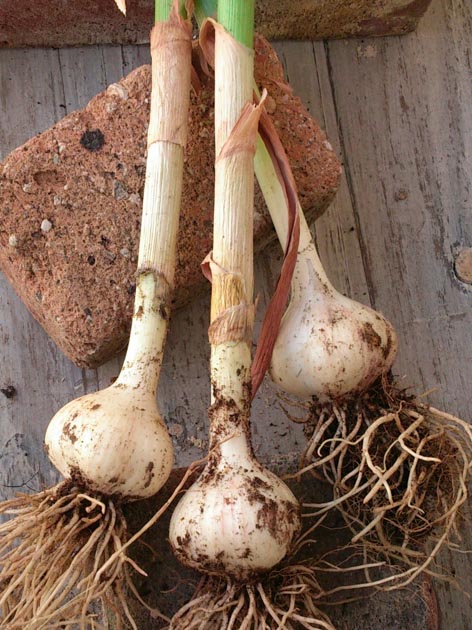
On the other hand, leafy vegetables such as Japanese mustard spinach, regular spinach, and lettuce have limited numbers to grow in one planter, so I often think “it is better to buy”.
I think that vines such as cucumbers and bitter gourd are relatively difficult to cultivate on the balcony. It is necessary to secure enough space not to affect other plants, and it is also troublesome to install the columns and nets that crawl the vines. It is niggling to clean up after the harvest. I keep away from vines even from the morning glory.
Let’s make success of vegetable cultivation on the balcony considering their characteristics and the environment of the balcony!
After several years of trial and error, I have come to understand “suited and not-suited vegetables” for balcony gardening. It differs depending on the sunlight and the ventilation, so each balcony has “suited and not-suited vegetables”. It is also good to overcome “not-suited” situation with efforts and patience.
Let’s enjoy balcony gardening, cherishing the little joy that vegetables give us every single day!
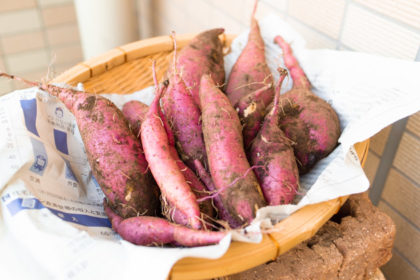
Harvest sweet potatoes in a growbag! This year is a bumper crop 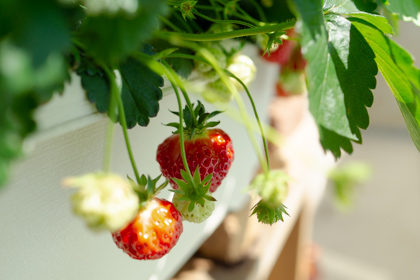
3 points to grow strawberries on the balcony. Enjoy the flower and the fruit! 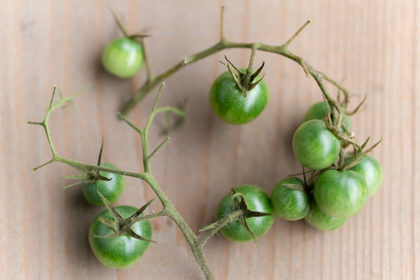
Cherry tomato has withered. Comparing to the last year, the reasons are clear 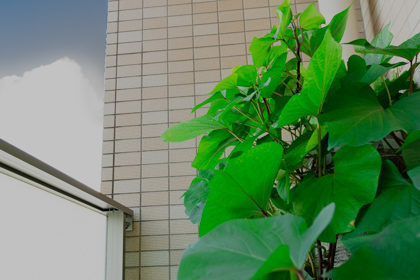
Sweet potatoes in a growbag grow strongly! Added fertilizer and soil 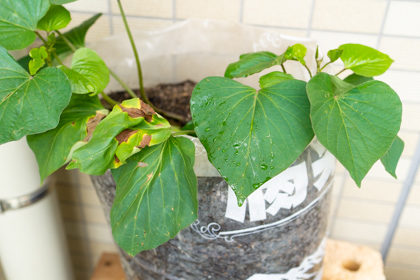
I planted seedings of sweet potatoes in a bag! In autumn, can dig on the balcony

